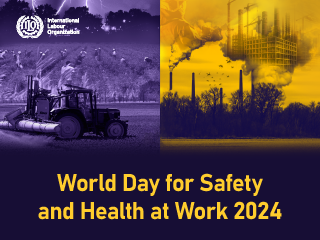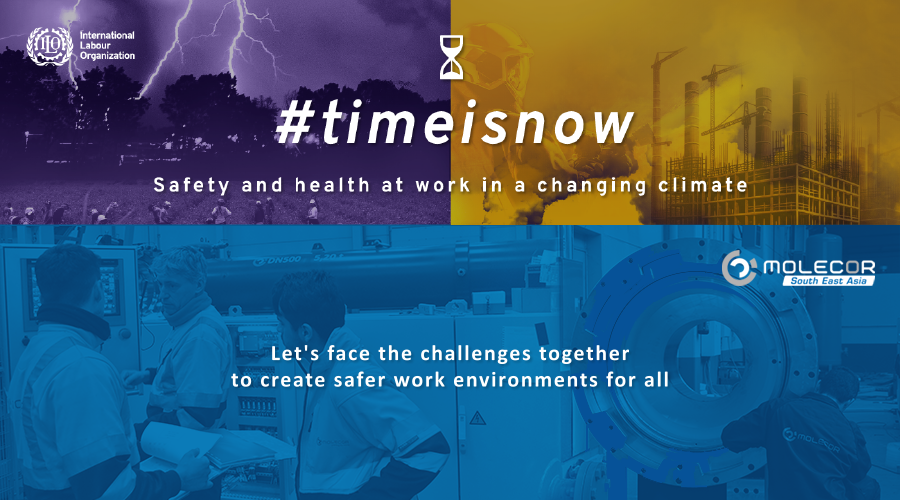
World Day for Safety and Health at Work, celebrated every April 28, aims to raise awareness of the importance of preventing occupational accidents and diseases. This year, the International Labor Organization (ILO) has chosen the theme "Impact of climate change on occupational safety and health" to highlight the new challenges facing the world of work due to global warming.
The more we learn about climate change the more we understand how it affects all aspects of our lives, and that includes the impact this change has on the safety and health of workers around the world. Extreme weather events such as heat waves, floods and droughts are becoming more frequent and intense, increasing the risk of work-related accidents and illnesses.
Effects of climate change on occupational health and safety:
- Heat waves: high temperatures can lead to heat stress, dehydration and even heat strokes, especially in workers who are physically active outdoors or in poorly ventilated environments.
- Extreme weather events: Among other risks, floods can damage or destroy workplaces and increase the risk of electrical accidents and drowning. And droughts increase the risk of waterborne diseases.
- Air pollution: Climate change is worsening air pollution, which can lead to respiratory, heart and other health problems.
- Vector-borne diseases: Climate change is changing the distribution of vectors such as mosquitoes and ticks, increasing the risk of diseases such as dengue fever, malaria and Lyme disease.
What can be done to protect workers?
It is essential that measures are taken to protect the safety and health of workers from the effects of climate change. Some of the measures that can be taken include:
- Evaluate risks: Companies should assess the specific risks that climate change poses to their workers and implement measures to mitigate those risks.
- Adapt workplaces: To cope with the effects of climate change by installing air conditioning or heating systems, improving ventilation, and protecting buildings from flooding among other solutions.
- Provide training: Workers should receive training on the risks of climate change and how to protect themselves, for example, how to recognize the signs of heat stress and how to stay hydrated.
- Promote health and wellness: Companies should promote the health and well-being of their workers, for example, by providing access to clean water and shade, and encouraging regular breaks.
Molecor's occupational risk prevention team works in all the company's production centers to ensure that whether in Malaysia, Peru, Spain or any other place, all its workers are exposed to as few risks as possible during their work activity. The Environment and CSR team also works alongside them to reduce the impact of the company's activities on the ecosystem and to help in the fight against climate change with actions that have reduced the emissions produced by the production centers and ensure that waste is managed effectively.
World Day for Safety and Health at Work is an opportunity for all actors involved in the world of work to join to raise awareness of the risks of climate change and take action to protect workers. A safer and healthier future of work requires urgent action to combat climate change and its impacts.
